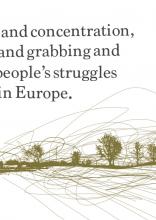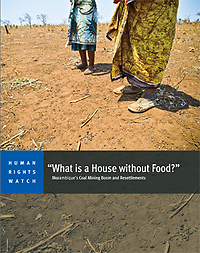IFPRI 2012 Global Food Policy Report
International Food Policy Research Institute
IFPRI's flagship report examines the major food policy issues, developments, and decisions of 2012. By putting into perspective the year's food policy successes and disappointments, it suggests how to move forward those policies that improve the food situation for the poor. Reflecting the expertise and experience of IFPRI researchers and other leading food policy experts, the report considers sever crucial questions:










